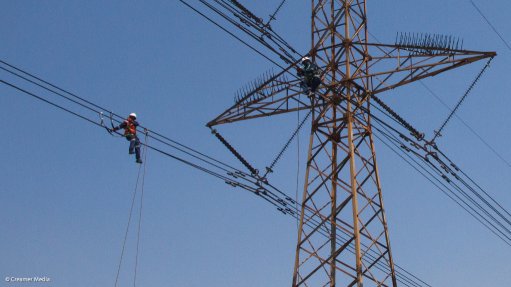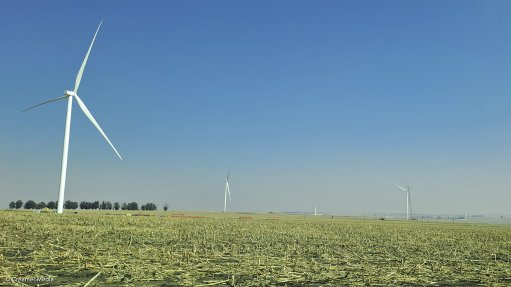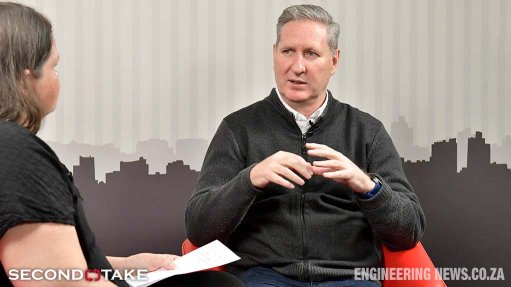The future imagined for used oil sees SA embracing a closed loop economy
This article has been supplied.
South Africa needs to move towards a more circular economy and away from the traditional focus on diversion from water and soil resources.
Moving towards a more circular economy - which is based on the principle of using, recycling, and reusing in an (almost) closed loop - could deliver opportunities including reduced pressures on the environment; enhanced security of supply of raw materials; increased competitiveness; innovation; growth and jobs. However, the shift also poses challenges such as financing; skills; consumer behaviour and business models; and multi-level governance.
Bubele Nyiba, the CEO of the ROSE Foundation (Recycling Oil Saves The Environment) says that the used oil industry in South Africa is an example of a sector that would greatly benefit from becoming an entirely closed circular economy through re-refining, but this will take time.
“Internationally, there is a significant trend towards re-refining of used oil back to base oil and it is thought that 70-80% of used oil will be re-refined back into base oils in Europe by the end of 2020.”
Environmentally, re-refining used oil is the ultimate solution for several reasons:
- Less utilization of natural resources;
- Emissions of carcinogenic compounds through re-refining are 15 times lower; Very low production of pollutants;
- CO2 emissions from re-refining are two times lower; and
- Re-refining offers an effective conservation of synthetic base oil compounds.
“Coupled with the obvious environmental benefits of re-refining, there are economic benefits to creating a closed loop economy - South Africa has an over reliance on base-oil imports, which can carry long lead times and are impacted by exchange rates, logistics, weather patterns, port operations etc. All of which make re-refining an appealing choice for us,” says Nyiba.
However, South Africa will struggle to transition towards a closed loop model. “The local market is driven on price and it is very expensive to set up a plant to produce high quality re-refined base oil. Installing the re-refining infrastructure runs into millions and very few businesses can afford an outlay of this magnitude.
Coupled with this we have a very high demand for burner fuels in South Africa - out of 350 million litres of new oil sold per annum, 120 million litres is collected for recycling. 90% of this is processed into fuel oil, to be used in furnaces, boilers, and other industrial heating requirements.”
“There are also no government incentives supporting re-refining or products made from re-refined base oil; and power costs are high which impacts on the energy intensive processes involved in re-refining,” explains Nyiba. “Whereas Europe has a very high level of environmental awareness amongst consumers – they label their re-refined base oil with environmental endorsements - our market is primarily driven on price and re-refined oil needs to compete on price with virgin oil.”
What does the future look like for SA?
South Africa is most probably the most developed re-refined oil market in Africa, followed by Egypt. Its market is estimated to be worth half a billion rand per year and is staffed by a combined workforce of 1,500 people. There are however currently only three re-refiners in the country that produce base oil from used lubes: FFS Refiners, Flexilube, and Motolube.
“Looking ahead ROSE would like to see South Africa follow in the footsteps of the global movement towards re-refining most used oil collected back to base oil and thereby create a closed loop system.
We hope to see a growth in re-refining in South Africa, and indeed in Africa as a whole, as re-refining could be the key to unlock many doors on the continent: sustainability, job creation, reducing reliance on imports and lowering the continent’s environmental impact.”
“While South Africa may not yet be able to adopt a European approach to used oil, a future imagined sees a focus on a closed loop and circular economy, which will see other companies upgrading their plants to a capacity that can produce base oil. We need to encourage those than can make the transition, without talking down our burner fuel producers”. concludes Nyiba.
Comments
Press Office
Announcements
What's On
Subscribe to improve your user experience...
Option 1 (equivalent of R125 a month):
Receive a weekly copy of Creamer Media's Engineering News & Mining Weekly magazine
(print copy for those in South Africa and e-magazine for those outside of South Africa)
Receive daily email newsletters
Access to full search results
Access archive of magazine back copies
Access to Projects in Progress
Access to ONE Research Report of your choice in PDF format
Option 2 (equivalent of R375 a month):
All benefits from Option 1
PLUS
Access to Creamer Media's Research Channel Africa for ALL Research Reports, in PDF format, on various industrial and mining sectors
including Electricity; Water; Energy Transition; Hydrogen; Roads, Rail and Ports; Coal; Gold; Platinum; Battery Metals; etc.
Already a subscriber?
Forgotten your password?
Receive weekly copy of Creamer Media's Engineering News & Mining Weekly magazine (print copy for those in South Africa and e-magazine for those outside of South Africa)
➕
Recieve daily email newsletters
➕
Access to full search results
➕
Access archive of magazine back copies
➕
Access to Projects in Progress
➕
Access to ONE Research Report of your choice in PDF format
RESEARCH CHANNEL AFRICA
R4500 (equivalent of R375 a month)
SUBSCRIBEAll benefits from Option 1
➕
Access to Creamer Media's Research Channel Africa for ALL Research Reports on various industrial and mining sectors, in PDF format, including on:
Electricity
➕
Water
➕
Energy Transition
➕
Hydrogen
➕
Roads, Rail and Ports
➕
Coal
➕
Gold
➕
Platinum
➕
Battery Metals
➕
etc.
Receive all benefits from Option 1 or Option 2 delivered to numerous people at your company
➕
Multiple User names and Passwords for simultaneous log-ins
➕
Intranet integration access to all in your organisation


















